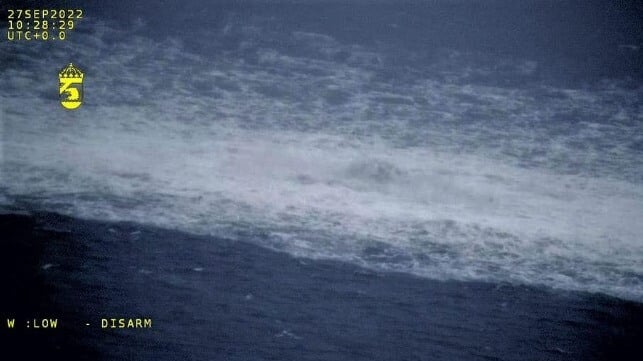Report: No Conclusive Evidence for Identity of Nord Stream Saboteur

The mystery of the attack on the Nord Stream pipeline network is under investigation, but there are few clues to the identity of the perpetrator - and the case may never be solved, according to the Washington Post.
When a sabotage attack ruptured three pipelines in the Nord Stream 1 and 2 gas complexes on Sept. 26, any sense of complacency Europe may have had about the security of subsea infrastructure evaporated, along with several hundred thousand tonnes of Russian natural gas. Several NATO member states quickly hinted (or stated) that they believe Russia to be the culprit - even though the Russian government was the majority owner of the pipeline and the gas inside it.
The incident was clearly an intentional attack, and almost certainly required nation-state capabilities to carry out, investigators have said. Swedish investigative teams found traces of "explosive residue" and "foreign items" at the blast sites in Sweden's waters. “The investigation is extensive and complex and will eventually show whether anyone can be suspected of, and later prosecuted for this," the Swedish Security Service said in November.
Germany, Sweden and Denmark all have open investigations running into the circumstances of the blast, but so far, they have come up with little to tie the incident to Russia or any other party, two dozen different European security officials and diplomats have told the Post.
“There is no evidence at this point that Russia was behind the sabotage,” one official said.
Even if there were evidence, it might not reach the public. Information from within the three parallel investigations is classified and closely held; Sweden has even refused to start a formal joint inquiry with its German counterparts, citing national security interests. (That aversion may be due in part to counterintelligence concerns: just last week, a member of Germany's Foreign Intelligence Service was arrested and charged with passing information to Russian spies.)
Given the ongoing war in Ukraine, the low levels of trust between Moscow and Europe, and Western suspicions that Russia may have been responsible for the blasts, European investigators have not allowed Russia to join the inquiry. The Kremlin has denounced the process and blamed the blast on its Western opponents, particularly Britain. The UK rejects these accusations.

that matters most
Get the latest maritime news delivered to your inbox daily.
As for the pipelines, no decision has yet been made on whether to undertake any repairs. Both parallel systems had already been shut down for political reasons before the attack, and few expect energy ties between Russia and Europe to resume at previous levels. As a measure of the current Western opinion of the pipeline system, German justice minister Marco Buschmann has acknowledged that the construction of Nord Stream 2 was an enabling factor for the Russian invasion of Ukraine (as the U.S. and Eastern European states had long warned).
“Knowing what we do today, the decision to pursue Nord Stream 2 . . . was Germany’s contribution to the outbreak of the war," he said in an address in late November.
